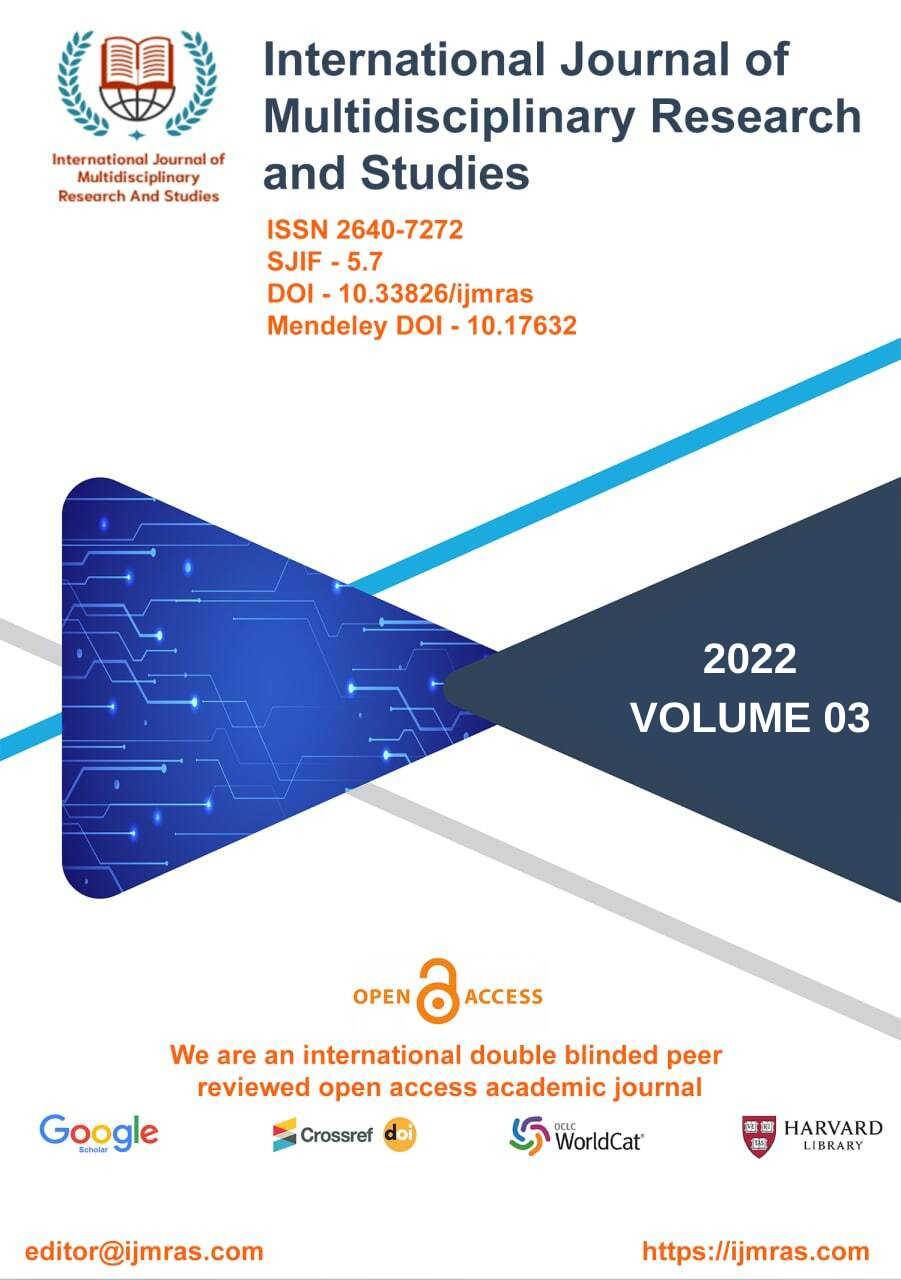COMPARATIVE ANALYSIS BETWEEN THE PERFORMANCE PUBLIC AND PRIVATE SCHOOL STUDENT

Abstract
When parents are able to actively encourage their children's healthy growth and development, children flourish. We receive crucial emotional, social, financial, and other forms of support from our families. Parents are the first and most crucial teachers in every child's life. Families provide the environment in which children develop necessary skills, such as decision-making, responsibility, respect for others, expressing affection and receiving love, fulfilling social roles, and expressing creativity. Family is crucial from the moment of birth and is always important. The fourth type of parenting is characterized by low demand and low responsiveness, which results in neglect. These parents don't have strict rules or high expectations. This kind of parent is unfriendly, lacks parental control over their kids, and interacts with them less. They also don't become engaged in kid-related issues and don't pay attention to their kids' needs. They are uninterested in their children's life and insensitive to their needs. These parents typically do not want their children to interrupt them and seldom ask their children's opinions while making choices.
Keywords
School, Private, Student, social schoolHow to Cite
References
Abdul Malik H.A. and Chapman, D.W. (1994) 'Teacher nationality and classroom practice in the Republic of Yemen', Teaching and Teacher Education, 10(3), pp. 335-344.
Abu-Hill, M.M. (2000) 'A Structural Model for Predicting Mathematics Achievement: Its Relation with Anxiety and Self-Concept in Mathematics', Psychological Reports, 86(3), pp. 835-847.
Abyad, A. (2018) 'Demographic Changes in the GCC Countries: Reflection and Future Projection ', Middle East Journal of Age and Aging, 15(1).
Adams, D. (1993) Defining educational quality-Biennial report. University of Pittsburgh: IEQ.
Adebayo, F. A. (2009) 'Parents' preference for private secondary schools in Nigeria', International Journal of Educational Sciences, 1 (1), pp.1-6.
Adefeso-Olateju, M. (2013) A critical inquiry into the effectiveness of public and private schools in Nigeria. Institute of Education, University of London.
Adeyemi, S.B. (2014) 'Comparative study of pupils' academic performance between private and public primary schools', World Journal of Education, 4(4), pp. 55-60.
Aggarwal-Gupta, M. and Vohra, N. (2010) 'Measuring Effectiveness of Schools in India: A Multiple Stakeholder Framework', e-Journal of Organizational Learning and Leadership, 8(2), pp. 1-22.
Aggarwal, Y. (2000) Public and private partnership in primary education in India: a study of unrecognized schools in Haryana, New Delhi. New Delhi: National Institute of Education Planning and Administration.
Aitkin, M. and Longford, N. (1986) 'Statistical Modelling Issues in School Effectiveness Studies', Journal of the Royal Statistical Society: Series A (General), 149(1), pp. 1-26.
Akhtar, S.N., Hashmi, M.A. and Naqvi, S.I.H. (2010) 'A comparative study of job satisfaction in public and private school teachers at secondary level', Procedia - Social and Behavioral Sciences, 2(2), pp. 4222-4228.
Akkari, A. (2004) 'Education in the Middle East and North Africa: The Current Situation and Future Challenges', International Education Journal, 5(2), pp. 144-153.
Akyüz, G. and Berberoǧlu, G. (2010) 'Teacher and classroom characteristics and their relations to mathematics achievement of the students in the TIMSS', New Horizons in Education, 58(1), pp. 77-95.
Al-Asfour, A. and Khan, S.A. (2013) 'Workforce localization in the Kingdom of Saudi Arabia: issues and challenges', Human Resource Development International, 17(2), pp. 1-11.
License
Copyright (c) 2020 Manju suman

This work is licensed under a Creative Commons Attribution 4.0 International License.
Individual articles are published Open Access under the Creative Commons Licence: CC-BY 4.0.




